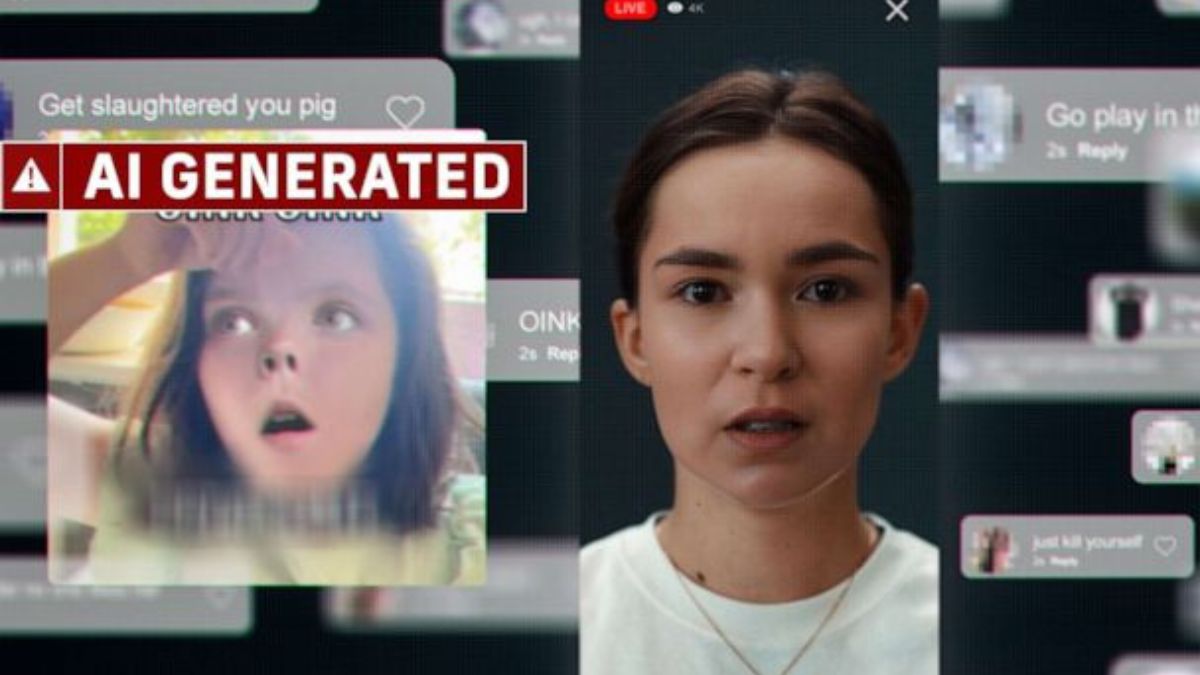How AI Can Be Used to Harm Children- Parents Need to Be Careful What They Share Online
July 31, 2023 By Raulf Hernes

(Image Credit Google)
(Image credit- ABC News)
With the development of technology, it could be dangerous for parents to share openly accessible data on their kids. This happens at the same time as a new AI-generated video advertising campaign highlights the risks associated with using
deepfakes on children.
AI-Generated Video Ad Campaign Illustrates the Risks of Publicly Posting Children's Personal Information
The new AI-generated video ad campaign has reportedly racked up millions of social media views,
according to the reports. The goal of the advertisement was to get parents to think twice before sharing publicly identifiable information about their kids.
The film, which purports to be from Deutsche Telekom, apparently employs the newest artificial intelligence technology to show the actor Ella, who is nine, as being her virtual age. The advertisement demonstrated how a child's digital imprint may be abused, potentially harming their lives.
[caption id="" align="aligncenter" width="5184"]

Image credit- CNBC[/caption]
The AI-produced Ella makes a startling revelation that emphasizes how, while images can serve as mere reminders for some people, they can also serve as valuable data for others. The next part of the clip explained how Ella's future can get much worse from this point forward.
It is harder to control where images uploaded online are shared or end up.
The actors who represented the parents in the video were referred to as the ones who published Ella's life online. This includes spending carefree times together while being blind to the danger the girl might face.
The director of data science at Thron, Dr. Rebecca Portnoff, participated in an interview. According to reports, the charity organization Thorn opposed the spread of child abuse online.
Dr. Portnoff claims that once an image is posted online, it is difficult to regulate where exactly it will be disseminated and where it will end up. It was also mentioned that the campaign materials highlight a variety of risks that may arise when parents post too much personal information online about their kids.
[caption id="" align="aligncenter" width="1200"]

Image credit- Forbes[/caption]
Bad actors can use a variety of online photos and videos that have been uploaded
It can be the possibility of identity theft or perhaps the development of CSAM using the data. Portnoff also emphasized how criminals use a variety of content alteration tools and services to alter images and videos that frequently originate from a child's social media account or even the public internet.
Identity fraud incidents total 7.4 million each year
According to Barclays Bank predictions, there would be 7.4 million cases of identity fraud every year by 2030. According to reports, this may be related to parents exposing too much personal information online.
The Deutsche Telekom advertisement demonstrates how generative AI could enable the creation of replicas of a child's likeness using their voice.
Also read:
How to Use Microsoft Bing AI Chat in Any Web Browser


 Image credit- CNBC[/caption]
The AI-produced Ella makes a startling revelation that emphasizes how, while images can serve as mere reminders for some people, they can also serve as valuable data for others. The next part of the clip explained how Ella's future can get much worse from this point forward.
It is harder to control where images uploaded online are shared or end up.
The actors who represented the parents in the video were referred to as the ones who published Ella's life online. This includes spending carefree times together while being blind to the danger the girl might face.
The director of data science at Thron, Dr. Rebecca Portnoff, participated in an interview. According to reports, the charity organization Thorn opposed the spread of child abuse online.
Dr. Portnoff claims that once an image is posted online, it is difficult to regulate where exactly it will be disseminated and where it will end up. It was also mentioned that the campaign materials highlight a variety of risks that may arise when parents post too much personal information online about their kids.
[caption id="" align="aligncenter" width="1200"]
Image credit- CNBC[/caption]
The AI-produced Ella makes a startling revelation that emphasizes how, while images can serve as mere reminders for some people, they can also serve as valuable data for others. The next part of the clip explained how Ella's future can get much worse from this point forward.
It is harder to control where images uploaded online are shared or end up.
The actors who represented the parents in the video were referred to as the ones who published Ella's life online. This includes spending carefree times together while being blind to the danger the girl might face.
The director of data science at Thron, Dr. Rebecca Portnoff, participated in an interview. According to reports, the charity organization Thorn opposed the spread of child abuse online.
Dr. Portnoff claims that once an image is posted online, it is difficult to regulate where exactly it will be disseminated and where it will end up. It was also mentioned that the campaign materials highlight a variety of risks that may arise when parents post too much personal information online about their kids.
[caption id="" align="aligncenter" width="1200"] Image credit- Forbes[/caption]
Image credit- Forbes[/caption]






